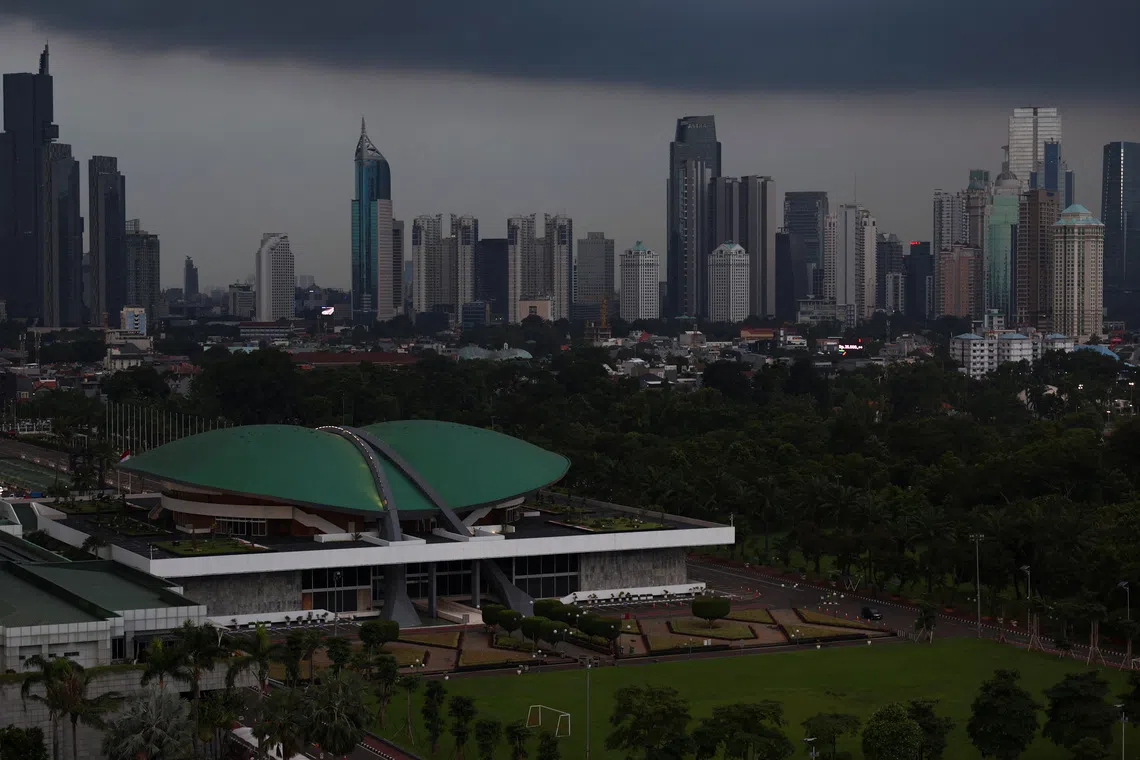Indonesian lawmakers get allowance hike after protests against perks
Sign up now: Get insights on Asia's fast-moving developments

In August, thousands of students, rights groups and other civilians in Indonesia joined protests against the government’s spending priorities, including pay rises for lawmakers.
PHOTO: REUTERS
JAKARTA – Indonesia has nearly doubled a key allowance for its lawmakers, an official said on Oct 13, one month after cancelling some of the benefits for parliamentarians in an effort to assuage public anger following a series of violent demonstrations.
In August, thousands of students, rights groups and other civilians joined protests against the government’s spending priorities, including pay rises for lawmakers. The demonstrations later spiralled into riots after a motorcycle taxi driver was killed during a police operation.
The violence, which spread to 32 of Indonesia’s 38 provinces, resulted in 10 deaths and at least 5,000 arrests, making it the deadliest outbreak of unrest in the archipelago for more than two decades.
The increase in the “recess allowance” for lawmakers – which is given to parliamentarians to support their work in their constituencies while Parliament is not in session – came into effect on Oct 3 at the start of the latest break, House Deputy Speaker Sufmi Dasco Ahmad told Reuters on Oct 13.
Each lawmaker will now get 700 million rupiah (S$55,000) per recess, he said, up from 400 million rupiah previously. Indonesia’s 580 parliamentarians take approximately five breaks per year.
The allowance, which Mr Dasco said had been approved by the Finance Ministry in May, is earmarked for visits and activities in their electoral districts.
The August protests were sparked by anger at the perks available to politicians, with each lawmaker also entitled to an additional 100 million rupiah per month in housing and other allowances.
Following the unrest, some of the benefits were removed, cutting the total to 65.5 million rupiah.
While commodity-rich Indonesia is South-east Asia’s biggest economy and a member of the Group of 20, the World Bank says tens of millions of Indonesians still live in poverty.
Mr Dasco defended the increase, saying the last allowance was based on the 2019 to 2024 period and did not take into account the subsequent rises in staple food prices and transportation costs.
“So this is not a raise; it’s a policy decided by the House secretariat after reviewing various kinds of aspects,” he said, adding that the figure was not proposed by the House but by the secretariat.
Mr Dasco, who is also a senior politician in President Prabowo Subianto’s Gerindra Party, said Parliament was developing a digital reporting mechanism to ensure transparency, which would be open to the public.
Mr Lucius Karus from Formappi, a non-profit parliamentary watchdog, said: “It’s like Indonesians have been pranked.
“We were satisfied by the abolition of the housing allowance... but, in fact, another fantastic allowance has appeared.” REUTERS


